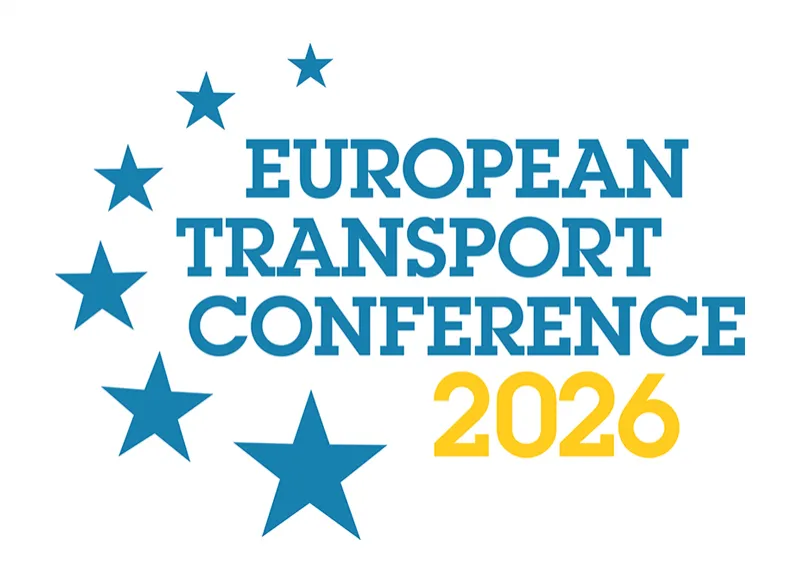-
Past ETC Papers

Browse, search and view papers from the past AET Conferences.
-
Members' Area

AET promotes networking and exchange of ideas, information and opportunities amongst members.
ETC Conference Papers
Conference Past Papers Repository
A planning approach towards cargo bikes diffusion: integrated solutions for logistics operators, retailers and households
Seminar
Day 1 (6 Sep 2023), Session 2, Urban Freight Planning, 14:00 - 16:00
Status
Accepted, documents submitted
Submitted by / Abstract owner
Edoardo Repetto
Authors
Edoardo Repetto, Cosimo Chiffi, Giuseppe Galli and Enrico Pastori
Short abstract
Cargo bikes' use in Last Mile Logistics and urban mobility is a crucial driver for cities' socio-environmental transitions. The paper proposes a planning approach to spread cyclelogistics and cargo bikes through multiple users’ integrated solutions.
Abstract
Urban Freight Transport (UFT) and Last Mile Logistics (LML) generate both economic advantages and social costs. On one hand e-commerce, e-groceries, and local retailers’ deliveries grow steadily. On the other, LML worsens the criticalities of motorized transport[1] and increases supply chain costs due to the inefficiencies ascribed to the vehicle choice. Policymakers are implementing different forms of access regulation and encouraging a shift to “clean vehicles”. Also, coordination efforts through Urban Consolidation Centres (UCCs) are frequently proposed as an opportunity to optimize processes. However, access regulation is minimised by many permits and the “clean vehicles”, except for direct emissions, reproduce the same criticalities. Also, UCCs are complex to coordinate with logistic operators not willing to outsource deliveries.
Cargo bikes and cyclelogistics are effective tools towards more liveable cities. Enabling efficient access regulation measures, an increased modal shift towards sustainable vehicles and the adoption of intermodal frameworks beyond UCCs, cargo bikes represent the most efficient vehicle carrying 2 to 5 times their weight (rather than 10% to 50% of vans) with minimum energy consumption and low ownership total cost. Considering replacement rates from 4 to 1 cargo bike per van (according to specifics) a concrete alternative to adapt LML operating systems is offered. Benefits exceed carbon neutrality with positive impacts on socio-economic indicators linked to multifunctional public space usage such as safety, accessibility and attractivity.
Despite representing an efficient solution, cargo bikes are still unknown and almost unseen in urban environments. Lack of planning prevents significant modal shifts and the development of cyclelogistics after pilots’ tests. Towards 2030 UFT carbon neutrality, cargo bikes must be ‘normalized’ as the most convenient vehicle for everyday operations and mobility.
This paper presents a range of integrated solutions designed for Reggio-Emilia, a small-size Italian municipality with circa 650 cars per thousand inhabitants, a relatively good cycling modal share and a historic centre with a diameter of 1km. The plan aims to present cost and time-effective solutions to spread cargo bike usage among logistic operators, retailers and households. The objective is to reduce Limited Traffic Zone (LTZ) entrances and private car usage.
Specificities of the case are given by a high percentage of retailers’ self-supplying, thus doubling delivery vehicles and an LTZ that poses minor disincentives with low costs permits. Also, the Municipality cannot manage the solutions and during the SUMP’s participatory tables, UCCs have been rejected by the stakeholders.
The following measures aim to offer an organic approach. First, a package of integrated solutions has been defined addressing (a) different potential users and usages. Secondly, (b) specific micro-infrastructures, services and related policies have been designed to pair the different measures with the expected user. Thirdly, a governance scheme has been defined through a (c) multilevel coordinating actor to monitor, promote and address users’ necessities to give continuity to the plan for future upscaling.
a) The targeted users are categorized as: logistics operators, retailers, and households.
b) The micro infrastructures, services and related policies are aggregated as: temporal on street exchange nodes of minimum dimensions – 30, 50 or 100 sqm (parking lots converted into load/unload areas furnished with 10’ or 15’ autonomous containers to rent for logistic operators), cargo bike sharing (on both an autonomous platform for retailers and on a community owned basis for households), cargo bike purchasing incentives.
c) The multilevel coordinating actor is selected through a grant of the municipality addressed to actors who have no conflict of interest with logistic services.
The package of cyclelogistics and cargo bike solutions proposed by Reggio Emilia municipality aims to pave the way towards an integrated approach. Although the measures are not yet implemented, the following results are expected in the coming years:
• Cost and time-effective measures involving both autonomous and communitarian services.
• Diversified LML’s approach addressing different users and uses.
• Definition of a comprehensive alternative system behind just “clean vehicles”.
To date, EU administrations have no “Cyclelogistics Plans”. UFT planning urges to be a necessity towards 2030 targets of carbon neutrality and parallel e-commerce growth. This paper poses a base in the definition of comprehensive solutions towards the spread of cargo bikes as one of the most effective tools to shift delivery vans and private motorized means of transport. The results are intended as a source for further research and scaling up among practitioners, academics, and policymakers.
[1] (road accidents, congestion, air and noise pollution, reduced accessibility, public space consumption, poor quality of life, urban inequalities, psychophysical well-being, etc.)
Programme committee
Freight and Logistics
Topic
Cities and transport – integrated planning, liveable cities, active transport
Documents:


Association For
European Transport
Forester House
Doctors Lane
Henley-in-Arden
Warwickshire, UK
B95 5AW
+44 (0) 15 64 793552
VAT number: 710 1866 64
Conference Supporters & Endorsers




Legal Entity
The Association for European Transport is registered as an Association ('vereniging') with the Chamber of Commerce for Haaglanden in The Netherlands under company number 27170096.
Built on Zenario




